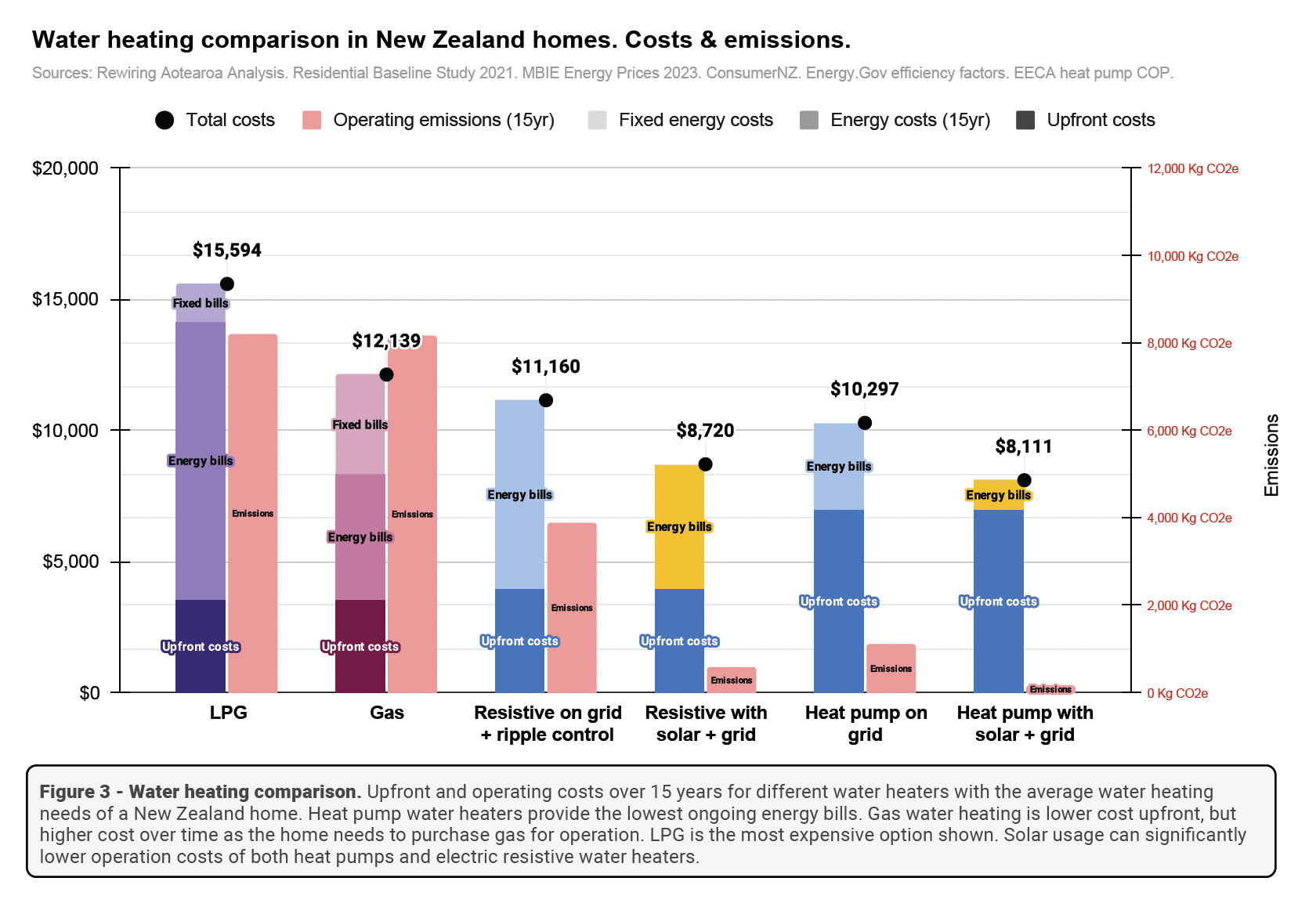Upfront costs, loans and savings
If we want to get access to a lower cost of living and reduce our emissions, getting more EVs on the road is still a good idea. We believe low-interest loans for home and transport electrification are a better option than subsidies, although there should still be room for income-contingent grants.
As our recent paper Investing in Tomorrow shows, this doesn’t need to be seen as a cost, it's an investment that can save households $29 million per day by 2040 because we are avoiding expensive imported foreign fossil fuels and using more locally generated renewable energy.
Absolutely. Rooftop solar is the cheapest delivered electricity available to New Zealand households and finding ways to use it during the day is what is likely to save the most money on your electricity bills because you can avoid higher grid prices.

On average, a solar install will cost 13c per unit of electricity, including upfront costs and interest on a loan. The average for a unit from the grid is around 35c, so there's a big gap.
Using solar to heat your water is the best thing you can do as that accounts for around 30% of an average home’s electricity use, and more if there are lots of people in the house.
Those with a resistive electric cylinder and solar can basically use it as a ‘thermal battery’ and time it to heat during the day (some set their cylinders to overheat) and, if needed, on cheap night rates. This ends up being similar to the lifetime costs of a hot water heat pump.

Solar can also run other appliances in the house during the day so, if you can, it pays to set timers for things like dishwashers, washing machines and, if your house isn't too draughty, heaters. Any excess can be exported to reduce your electricity bill further, so nothing is wasted (shop around for the best deal on exports as they vary).
If you have an EV and it is at home for a least a few hours a week during the day, you already have a battery, so it makes a lot of economic sense to direct the solar into your car. Electricity from home is the cheapest fuel, and solar is the cheapest electricity.
Batteries are not yet an economic slam dunk in New Zealand and are primarily for resilience, but they are fun to tinker with, prices continue to fall, and Electricity Authority changes to rules that offer fairer prices for exporting at peak will improve the numbers.
If you’ve got the money, the best option is to pay for electrification up front and take advantage of the massive bill savings on energy.

With solar, you can lock in the price of electricity for the lifetime of the panels and provide a 10 - 15% return on investment, which is much better than the average deposit rate - and likely to improve as the price of grid electricity goes up.
Talk to your existing lender to add solar to your mortgage or see what green finance products they offer at lower interest rates. Many banks offer green loans for other low-emissions purchases like heat pumps, hot water heat pumps and EVs, but these are generally short term.
The upfront costs of electric machines are often higher, but our research has proven that New Zealand is one of the first countries to reach what we call the electrification tipping point. This is the point where households and businesses can save money right now if they electrify their appliances and vehicles, even with the upfront costs and interest from loan finance built in. It also means we can significantly reduce our emissions. So when the time comes to repair or replace those fossil fuel machines, we want New Zealanders to make the switch to electric.
One of the main reasons you would buy a petrol car today is because the upfront cost is still lower than an EV. It may seem cheaper, but when you buy a petrol car, you’re also locking yourself into many years of increasingly expensive petrol. The cost of fossil fuels have increased at above the rate of inflation and they are expected to keep increasing, while the price of solar and batteries has continued to declne.


Global forecasts show EVs could be the same price as fossil fuel cars by 2026 so the economics keep improving. And it is a similar story with other electric machines.
.svg)
Check out our privacy policy here


.avif)


.png)


.png)









.png)

.svg)
